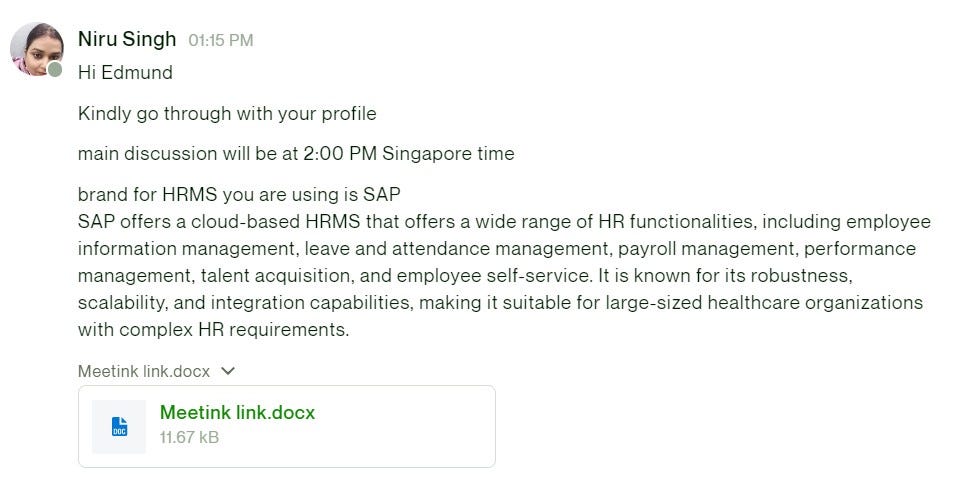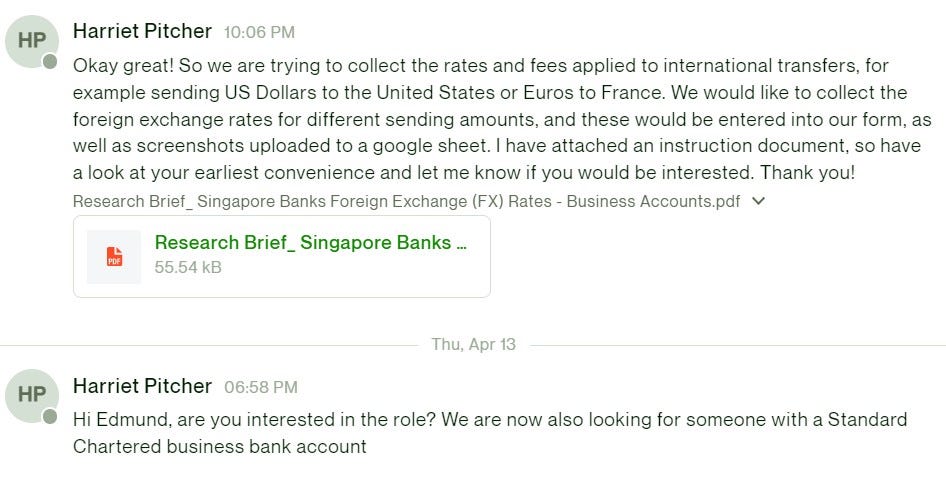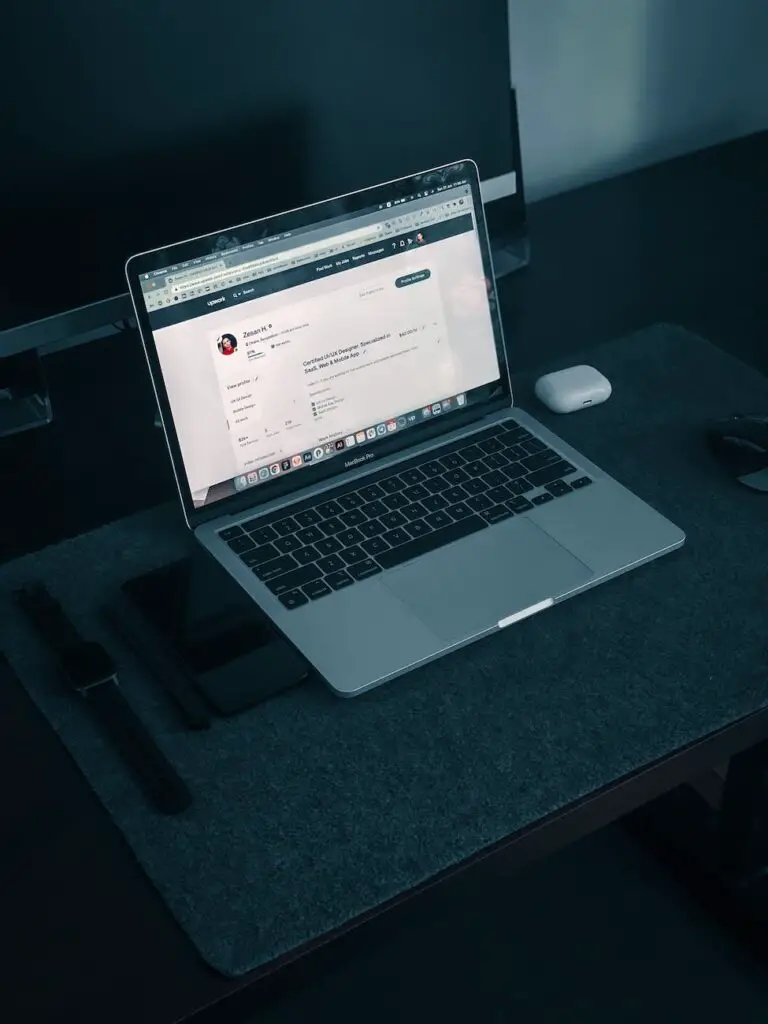How I got around all these issues
As a freelancer, I’ve used Upwork for over three years to find clients and gigs. Last year, I received a notification saying that I am now the top-rated seller on the platform in Singapore, great!
Even though I am a top-rated seller, I keep getting lowballers and scammers in my feed which is starting to annoy me.
It’s frustrating to spend time and effort submitting proposals, only to receive an offer that pays peanuts or a request to work for free. Even worse, scammers are lurking on the platform, preying on unsuspecting freelancers.
I get why many people hate to be on Upwork as compared to Fiverr. But don’t lose hope just yet. In this article, I’ll share my personal experience on how to navigate Upwork, avoid lowballers and scammers, and increase your chances of landing quality clients and gigs.
What is Upwork?
For those who aren’t familiar, Upwork is a freelancing platform that connects businesses and clients with freelancers. The platform boasts over 18 million registered freelancers and over 5 million registered clients. Upwork offers a variety of job categories, including web development, design, writing, marketing, and more.
Why is Upwork Infamous for Low-Ballers and Scammers?
Upwork’s popularity makes it a hotspot for lowballers and scammers. Unfortunately, Upwork has a reputation for attracting clients who want to pay the bottom dollar for high-quality work or expect free work. Since all gigs are left in the open market and payment is not needed until the job is completed, naturally, many scammers would just run away with your work.
Additionally, scammers often target Upwork freelancers, promising high-paying jobs but instead stealing their work or information.
My Experience with Low-Ballers and Scammers on Upwork

I’ve encountered several lowballers and scammers on Upwork throughout my freelancing journey. These experiences were frustrating and time-consuming. It’s not uncommon for freelancers on Upwork to encounter these types of situations. Here are a few examples:
Low Ballers
A client offered me $5 to write a 1000-word article on a complex topic that required in-depth research. Don’t fall for this scam. They are clearly sweeping the Upwork floor looking for top-rated sellers to work with these kinds of prices.
Sample Only
Although Upwork’s clients can ask for sample work in their proposal. It’s important to know that almost all of it is a scam. They are simply looking for the best description they want for their work for free. I know that because I have submitted tens of proposal pieces and realized sample pieces’ proposal almost always never works out.
Bank Account
A scammer messaged me, asking for my bank account details to “pay me for work I’ve completed” even though I haven’t accepted any job offers from them.
How to Avoid Low-Ballers and Scammers on Upwork
Here are some tips to avoid low-ballers and scammers on Upwork:
1. Set a Reasonable Rate
One way to avoid low-ballers is to set a reasonable rate for your services. When you set your rate too low, you may attract clients who want to pay peanuts. On the other hand, setting your rate too high may scare off potential clients. Be realistic, if you are a content writer, charge at least $30 for an article minimum.
Do your research to determine the average rate for your services and set a rate that reflects your skills and experience. Keep in mind that it’s okay to negotiate your rate, but don’t let clients pressure you into accepting a rate that’s too low.
2. Be Wary of Vague or Unrealistic Job Descriptions
Lowballers and scammers often post vague or unrealistic job descriptions. Be wary of clients who offer to pay you a small amount for a complex or time-consuming task. Additionally, be cautious of clients who ask you to work for free or provide a “sample” article as part of the application process.
Read the job description carefully and ask questions if anything seems unclear. If the job seems too good to be true, it is probably fake.
3. Check the Client’s Reputation
Before accepting a job offer, take the time to review the client’s reputation on Upwork. Look for clients who have a high job success rate and positive reviews from previous freelancers. Additionally, be wary of clients who have no history on the platform or a low job success rate.
You can also reach out to previous freelancers who have worked with the client and ask about their experience. This will give you a better idea of the client’s communication style, work ethic, and payment history.
4. Use the Upwork Payment Protection
Upwork offers a payment protection program that ensures you get paid for the work you’ve completed. When you use Upwork’s payment system, the client is required to deposit funds into an escrow account. Once you’ve completed the work, you can submit it for approval, and the client will release the funds.
Avoid working with clients who want to pay outside of Upwork or request your bank account information. These are red flags for potential scammers.
5. ALWAYS ASK QUESTION
I get it, you want to quickly start the work and make some money. But in order to secure your earnings as well. You need to make sure your client has the capability to pay for your service.
It shouldn’t be empty promises like: “ Oh look I have the money right here.”
Most of these scammers typically would show “their bank account” to prove they have what it takes to pay you. If your client is sending you “their bank account information”, they most likely aren’t genuine clients.
6. Trust Your Gut
Finally, trust your gut when working with clients on Upwork. If something seems off or too good to be true, it probably is. Don’t be afraid to decline job offers or end contracts if you feel uncomfortable or suspect fraudulent activity.
Just be wary of clientele from these countries
Sadly, scammers typically come from certain countries on Upwork such as India and China. I’ve worked with them a number of times and most of them have tried to scam me. Here are some examples of mine.
Asking you for help in YOUR country

In order to get approval for a loan, scammers would want to hire local residents in the country to have a Zoom call with the HR personnel of a company. This is meant to take funding or an act to get licensing to start a business.
They typically sent out a proposal asking for a “voice-over” and said they needed local voices to ask on their behalf. I was able to detect something is not right when I ask why they couldn’t do it since the job was only to talk to HR personnel.
Sadly, this has been going on on Upwork for a really long time and I never bother anymore to read such proposals.
Asking for people ONSITE

In order to understand their business, I had to video call them to make sure what I was getting in for. After understanding the business, I knew it was a scam.
These scammers would ask for exchange rates and send screenshots using your bank information. While this may not sound dangerous but it can actually lead you to a lot of serious trouble.
What these scammers are actually looking out for are your bank account details. They would use your bank information to launder and deceive local authorities. I have met similar cases in Singapore and luckily I read scam cases from Upwork.
Upwork, Please Improve Yourself
While Upwork may still be the second largest freelancing platform to Fiverr, I don’t think it will catch up to Fiverr anytime soon. Until these scam issues are resolved, Upwork will always remain a popular freelancing platform to scam people.
If you are a freelancer looking for a job, most freelancers would agree the best places for you to get jobs online is through Fiverr and LinkedIn. These places have historically been well-known for their track record in getting good reliable leads for freelancers. I made over $2,000 per month on Fiverr itself and I met a number of businesses that are working with me to this day. One of our writers Kelly at HustleVentureSG is also earning over $168,000 in 2022 working part-time on Fiverr alone.
You see, freelancing isn’t hard but it does take a while to build relationship. In the midtime, do learn to build relationships with your custoemr and hopefully by one or two years you can quit your full-time job.





